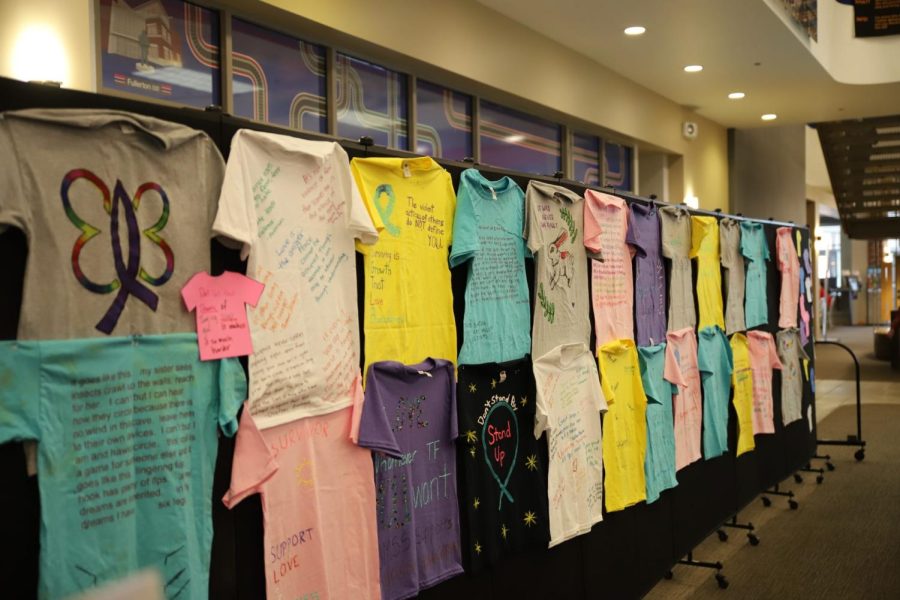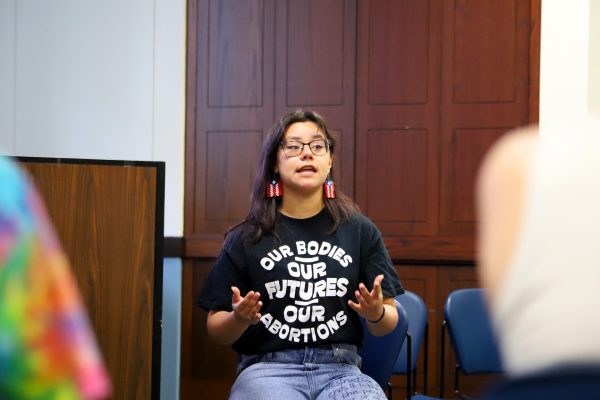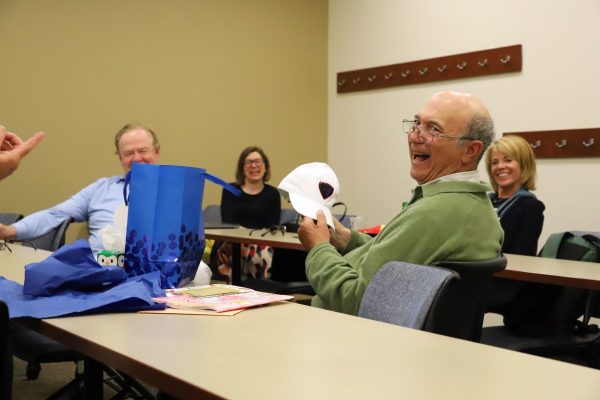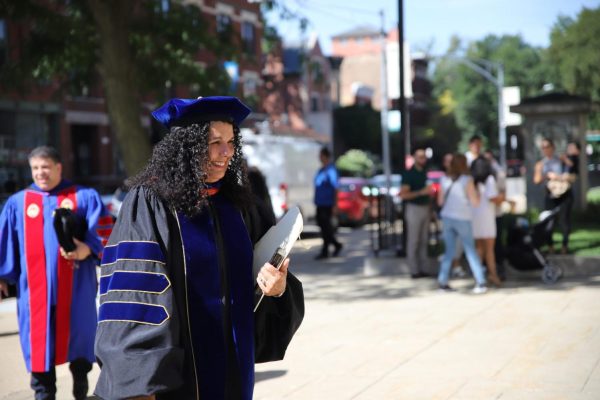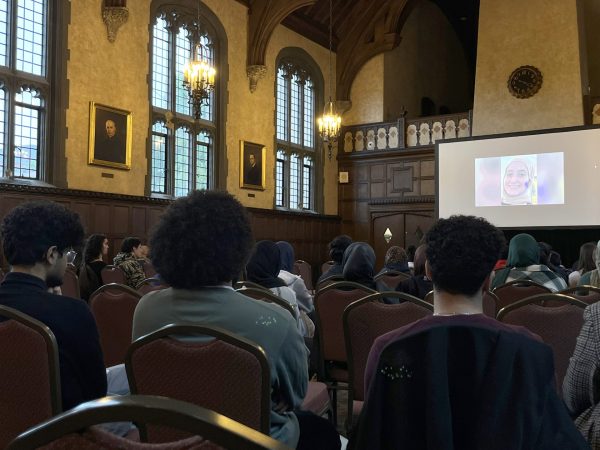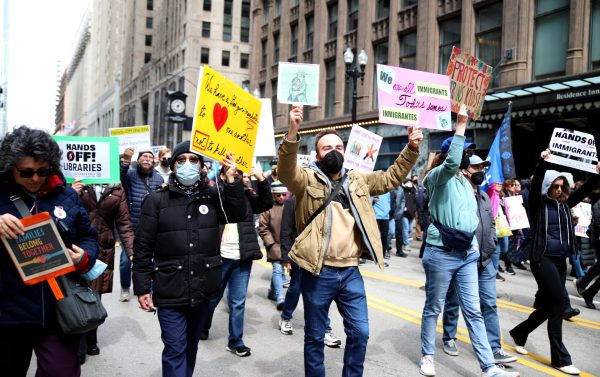Clothesline Project Exhibit allows survivors to share their story
Sofia Leal for The DePaulia
Rows of colorful shirts created a collective art display from afar, but as students and staff members stood closer, each piece of clothing told its own story. One shirt read the phrase, “The violent actions of others do not define you,” and another titled, “If he found out I had PTSD, I would be called a liar,” described a contributor’s experience with abuse.
Around 50 students and staff members showed their support for survivors of violence at The Clothesline Project Exhibit held in DePaul’s Lincoln Park Student Center on April 26. In honor of Sexual Assault Awareness month, volunteers from the Office of Health Promotion & Wellness (HPW) and the Women’s Center spent the last three weeks tabling on campus to encourage members of the community affected by violence to decorate a T-shirt.
With Sexual Assault Awareness month events being held virtually for the past two years at DePaul due to the pandemic, the project’s organizers wanted to take advantage of being able to show tangible expressions of pain and healing.
“We haven’t been able to involve physical representations at out events, so I thought of doing this clothesline project,” said Sara Heidbreder, a sexual and relationship violence prevention specialist at DePaul’s HPW.
The roots of this project date back to 1990 as a coalition of women’s groups in Massachusetts worked to educate the public on the staggering number of violent acts against women. Rachel Carey-Harper, a visual artist, created the concept as a way for survivors to “hang up” their pain and walk away. Since then, the project has developed in many ways, including the colors of the clothing indicating different types of violence. Hundreds of organizations and universities across the globe have created their own clotheslines with an estimated 60,000 shirts created, according to the Clothesline project’s official website.
Various resources were available at the event for attendees. One of them being a private space for those looking to speak confidentially with professionals about their feelings or experiences surrounding violence.
“It is a very sensitive topic, but I want survivors to know they’re not alone. I think talking is the first step, and we can figure out what’s next from there,” Heidbreder said.
Greenlight Family Services, a social services organization based out of McKinley Park, and Broadway Youth Center, a LGBTQ+ youth health facility located in Buena Park, set up information booths to discuss their available services for local students.
“It’s startling to see how many shirts are up there, but I think it’s important because it shows a lot of people have been affected by this issue,” said Aviv Goldman, a senior at DePaul.
On U.S. college campuses, 13 percent of all undergraduate and graduate students experience rape or sexual assault through physical force, violence or incapacitation while attending, according to the Rape, Abuse & Incest National Network.
“I hope it helps people see that we need to do more preventative work around violence. Not just supporting people after the fact, but really making sure that our campus is a space actively working against instances of violence,” Goldman said.
The collaboration between HPW and the Women’s Center came naturally for this project due to their closely aligned goals and practices.
“The Clothesline Project offers a space to visualize community and come together to find common ground around a difficult topic,” said Keisha Lozano, a student worker at the Women’s Center. “The Women’s Center wants to offer a space that isn’t just comfortable but helps our community find each other, so it made sense for us to offer to help with the project.”
The shirts were not censored for language or content, but including full names was discouraged out of respect for people’s privacy and safety. The mission statement explains the purpose behind the visual display is “to provide another avenue for them [survivors] to courageously break the silence that often surrounds their experience,” according to Clothesline.
“From speaking with students afterwards, the display helped them not just think through things alone but speak with other students that were present,” Lozano said.
Members of the DePaul community facing sexual and relationship abuse and violence can visit the Women’s Center and the Office of Health Promotion & Wellness on campus for safe spaces, resources and professional counseling.


